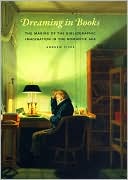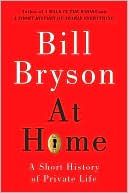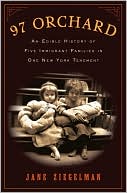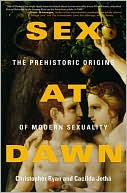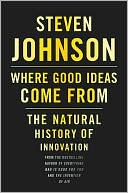Dreaming in Books: The Making of the Bibliographic Imagination in the Romantic Age
Search in google:
At the turn of the nineteenth century, publishing houses in London, New York, Paris, Stuttgart, and Berlin produced books in ever greater numbers. But it was not just the advent of mass printing that created the era’s “bookish” culture. According to Andrew Piper, romantic writing and romantic writers played a crucial role in adjusting readers to this increasingly international and overflowing literary environment. Learning how to use and to want books occurred through more than the technological, commercial, or legal conditions that made the growing proliferation of books possible; the making of such bibliographic fantasies was importantly a product of the symbolic operations contained within books as well. Examining novels, critical editions, gift books, translations, and illustrated books, as well as the communities who made them, Dreaming in Books tells a wide-ranging story of the book’s identity at the turn of the nineteenth century. In so doing, it shows how many of the most pressing modern communicative concerns are not unique to the digital age but emerged with a particular sense of urgency during the bookish upheavals of the romantic era. In revisiting the book’s rise through the prism of romantic literature, Piper aims to revise our assumptions about romanticism, the medium of the printed book, and, ultimately, the future of the book in our so-called digital age. The New Republic "Andrew Piper has written a book about the nineteenth century’s romance with books, looking at the many ways in which the physical character of a book and its illustrations shaped a reader’s avidity. Piper’s scholarly history is fueled by a bookish ardor—you can feel the love that went into his footnotes. This writer’s thinking comes straight out of the long afternoons he must have spent in the library, pulling book after book off the shelves, experiencing the power not only of words but also of bindings, typefaces, and illustrations."—Jed Perl, The New Republic, "The Best Art Books of 2009"— Jed Perl
AcknowledgmentsList of Illustrations Introduction / Bibliographic Subjects“Hypothesis: All is Leaf” Books: Past, Present, and Future Is Literary History Book History? Bibliographic Romanticism Romanticizing Books One / NetworkingFortresses of the Spirit Rethinking the Book of Everything The Novel as Network: J.W. Goethe’s Wilhelm Meister’s Travels The Problem of the Where The Ladies’ Pocket-Book and the Excerpt The Ausgabe letzter Hand and a Poetics of the Version Cartography and the Novel The Anatomy of the Book: The Work of Art as Technological Präparat Coda: Faust and the Future Two / CopyingMaking Classics The Combinatory Spirit and the Collected Edition Producing Corporeal Integrity (Wieland, Byron, Rousseau) Reprinting, Reproducibility, and the Novella Collection E. T. A. Hoffmann’s The Serapion Brothers and the Crisis of Originality “The Uncanny Guest” and the Poetics of the Same The Plot of the Returning Husband The Magnetic Doppelgänger The Whisper, Noise, and the Acoustics of Relocatability The Collectivity of theCopy Again Three / ProcessingPrinting the Past (Intermediality and the Book I) The Editor’s Rise and Fall Immaculate Reception: From Erneuung to Critical Edition (Tieck, Hagen, Lachmann) Walter Scott, the Ballad, and the Book The Borders of Books: Minstrelsy of the Scottish Border Narrating Editing: The Historical Novel and Tales of My Landlord “By Heart” v. “From the Heart” in The Heart of Mid-Lothian Producing Singularity Four / SharingAssorted Books: The Romantic Miscellany (Almanacs, Taschenbücher, Gift-Books) Common Right v. Copyright Book-Keeping and the Inscription (Intermediality and the Book II) Hollow Texts, Textual Hollows The Problem of the “Of”: Washington Irving’s “An Unwritten Drama of Lord Byron” Sharing Sharing: Poe, Hawthorne, and Mrs. Chamberlain’s “Jottings from an Old Journal” Five / OverhearingThe Problem of Open Source “Le commerce intellectuel” Women, Translation, Transnation Overheard in Translation: Sophie Mereau’s La Princesse de Clèves and the Loose Confession María de Zayas’s Novelas Amorosas y Ejemplares and the Betrayal of Writing Boccaccio, Privacy, and Partiality: Fiammetta and Decameron 10.3 Six / AdaptingRomantic Lines: Illustrated Books (Intermediality and the Book III) Afterimages: Goethe and the Lily Stems, Spirals, and the New Scientific Graphics Overwriting: Balzac between Script and Scribble Parallels, or Stendhal and the Line of the Self Coda: Sebald’s Bibliographic Vanishing Points In Place of an Afterword / Next to the BookLection/Selection Book Was There, It Was There Besides: Towards a Translational Humanism Beckett’s “Eff” NotesIndex
